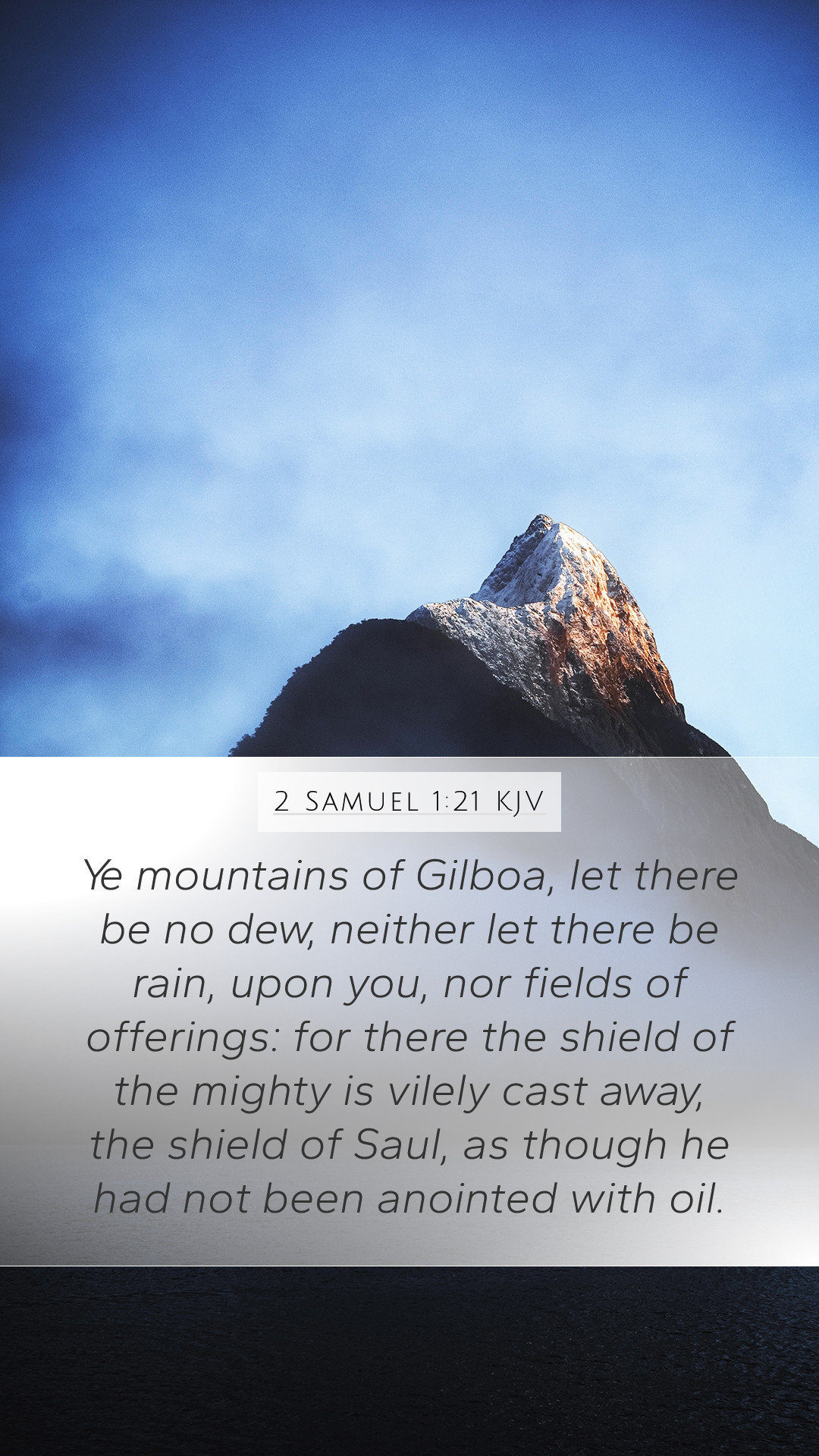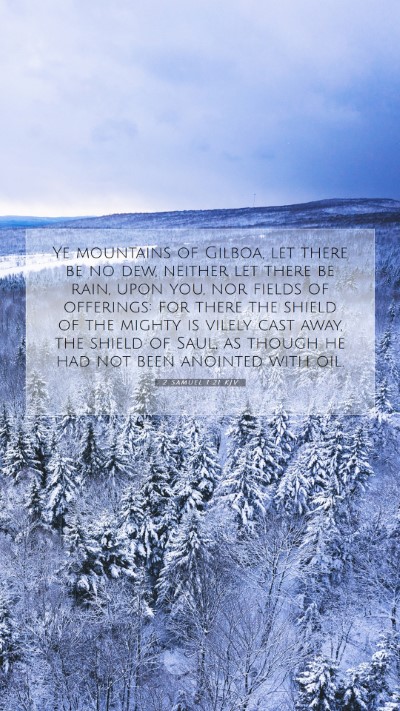Bible Verse Meaning: 2 Samuel 1:21
Verse: "O mountains of Gilboa, let there be no dew nor rain upon you, nor fields of offerings: for there the shield of the mighty is vilely cast away, the shield of Saul, as though he had not been anointed with oil." (2 Samuel 1:21)
Overview
This verse occurs after the death of King Saul, where David laments the demise of his adversary and mentor. It reflects David's deep sorrow over Saul's downfall and the consequences that beset the land due to this loss of leadership.
Bible Verse Interpretations
The interpretation of 2 Samuel 1:21 involves understanding the symbolism of the mountains of Gilboa and the imagery used by David to convey his grief and the tragedy of Saul's reign.
- Mountains of Gilboa: These mountains represent a place of defeat and mourning. David calls for these mountains to remain dry, indicating a curse upon the land due to the fallen king.
- No Dew nor Rain: The request for no dew or rain symbolizes barrenness and a lack of blessings, which could be interpreted as a reflection of the spiritual barrenness following Saul’s death.
- The Shield of the Mighty: Saul's shield represents his power and kingship, which has now fallen into disgrace. David laments that the mighty shield, symbolic of strength, has been cast away, indicating defeat in battle.
Understanding Scripture
This verse serves as a poignant reminder of the complexities of leadership and the weight of legacy. David, though once a fleeing fugitive from Saul, finds himself mourning the loss, showcasing the blend of respect, sorrow, and sadness that accompanies death, even of an adversary.
Commentary Insights
According to Matthew Henry, this verse highlights David’s genuine sorrow for Saul, despite their turbulent relationship. It shows respect even for a king who had wronged David, emphasizing the deep emotional landscape of their story.
Albert Barnes emphasizes that the mountains of Gilboa are symbolic of the spiritual and physical desolation that follows the fall of a leader. He articulates that David's lament not only mourns Saul’s death but also the impact it has on the nation of Israel.
Adam Clarke notes the significance of the shield being vilely cast away. He explains that this reflects both the physical and spiritual failure of Saul's reign, and a regret for what might have been had Saul fully embraced the anointing of God.
Bible Study Insights
This verse provides valuable insights for Bible study groups focusing on the themes of leadership, loss, and the consequences of actions. It encourages reflection on how the fall of a leader affects a community both spiritually and emotionally.
Related Bible Cross References
- 1 Samuel 16:1 - Saul's anointing as king.
- 1 Samuel 31:1-6 - The account of Saul's death.
- 2 Samuel 1:17-27 - David’s lament for Saul and Jonathan.
Conclusion
2 Samuel 1:21 serves as a rich text for understanding the complex emotional responses that accompany leadership and legacy. It exemplifies the profound sorrow and reflection that David experiences, offering a valuable lesson in the interpretation of scripture about love, loyalty, and the realities of life and death.
Applying Bible Verses to Daily Life
Through this verse, we learn about the importance of respecting our leaders and reflecting on our relationships, even with those we may not agree with or have conflict. This approach can be beneficial for Bible study lessons that focus on the themes of mercy and understanding in a world often marked by division.


